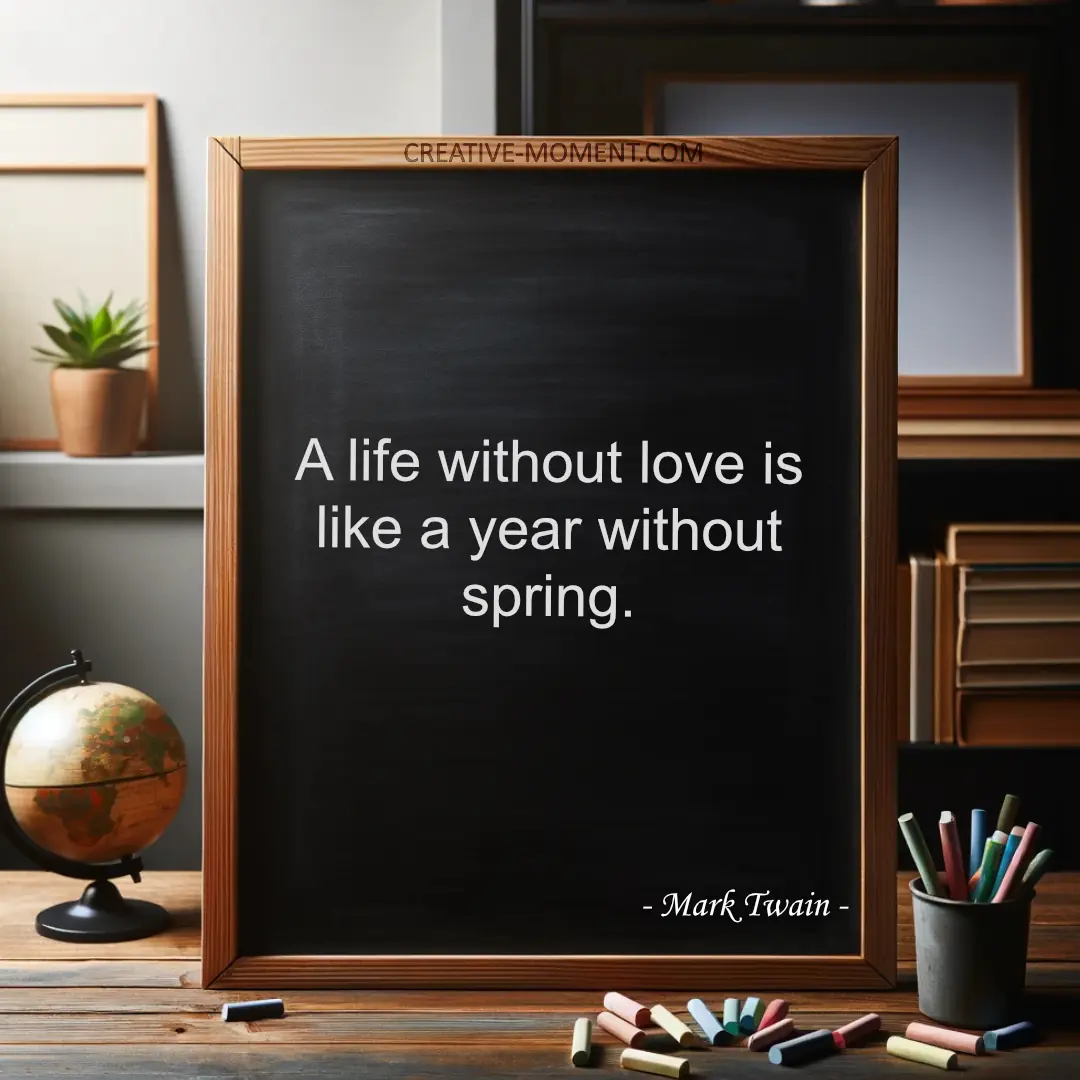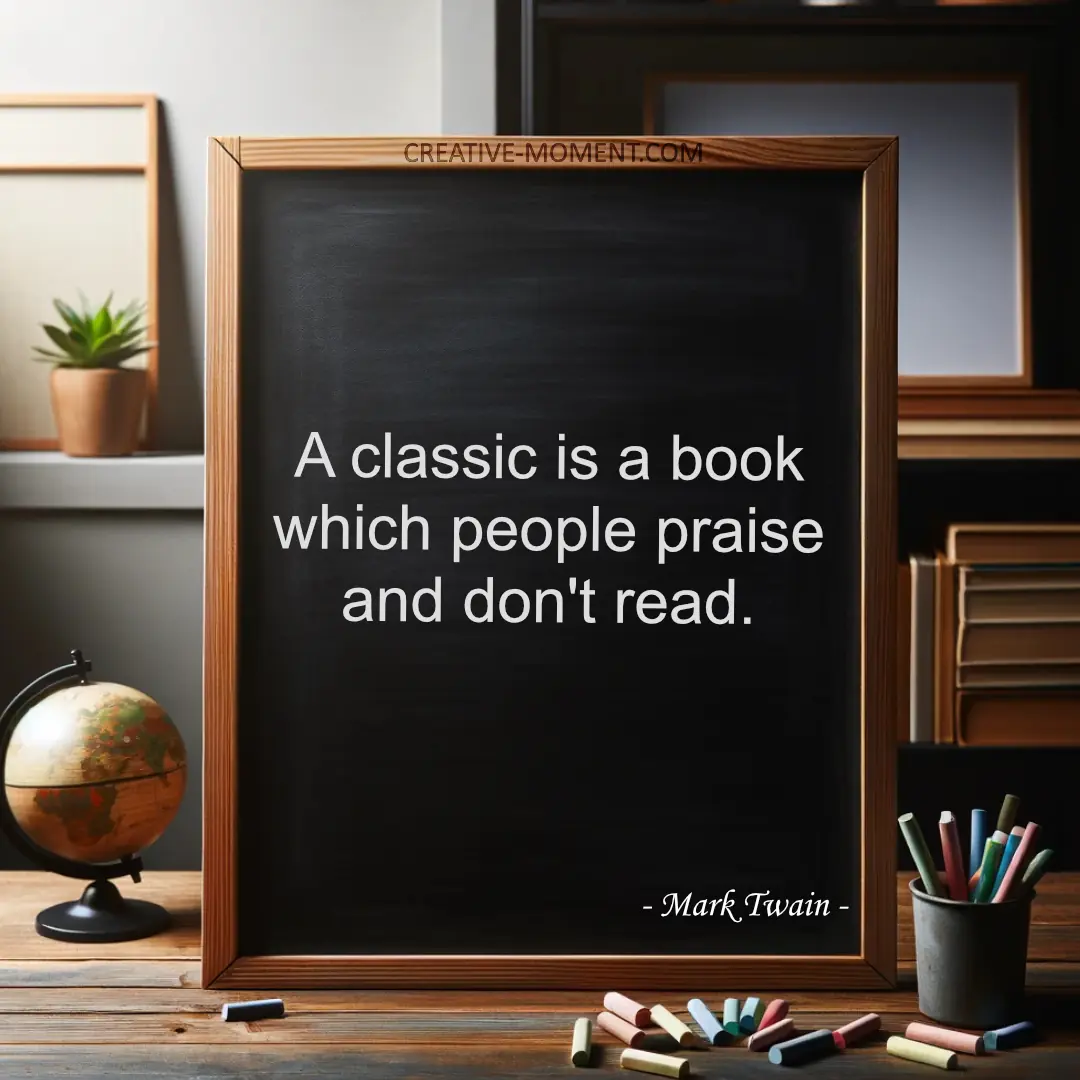Saying: A classic is a book which people praise and don't read
Info
- Title: A classic is a book which people praise and don't read
- Type: Sayings
- Category: Humor and Wit
- Print: Download as PDF for printing
Mark Twain expressed with the line “A classic is a book which people praise and don't read.” a sharp observation on literary reception. The American author and humorist highlights the gap between admiration and engagement. This quote ranks among his most cited aphorisms and often appears in discussions about literature, cultural awareness and reading habits.
Origin and Use of the Quote
The quote clearly originates from Mark Twain (Samuel Langhorne Clemens, 1835–1910), celebrated for his wit and satirical style. The original English wording is: “A classic is a book which people praise and don't read.” It frequently appears in quote collections on literature, education and cultural critique, illustrating the tension between public acclaim for classical works and actual readership.
Meaning and Interpretation of the Quote
With this statement, Twain intelligently addresses the contrast between public praise and actual reading behaviour. The strong ironic tone emphasises the discrepancy between recognition and readership.
The formulation refers to a mismatch between appreciation and active engagement. A work may be deemed a literary classic without being widely read.
Twain’s phrasing invites reflection on cultural perception. It shows that mere recognition does not guarantee meaningful engagement—through reading and comprehension.
This critique underscores the importance of engagement with culture: a classic only lives meaningfully if it is actually read. Recognition without reading remains superficial.
The quote is featured in literary anthologies, discourse on educational topics and is used rhetorically by speakers and public figures who highlight cultural blind spots with humour.
Similar images



 Back to overview
Back to overview

